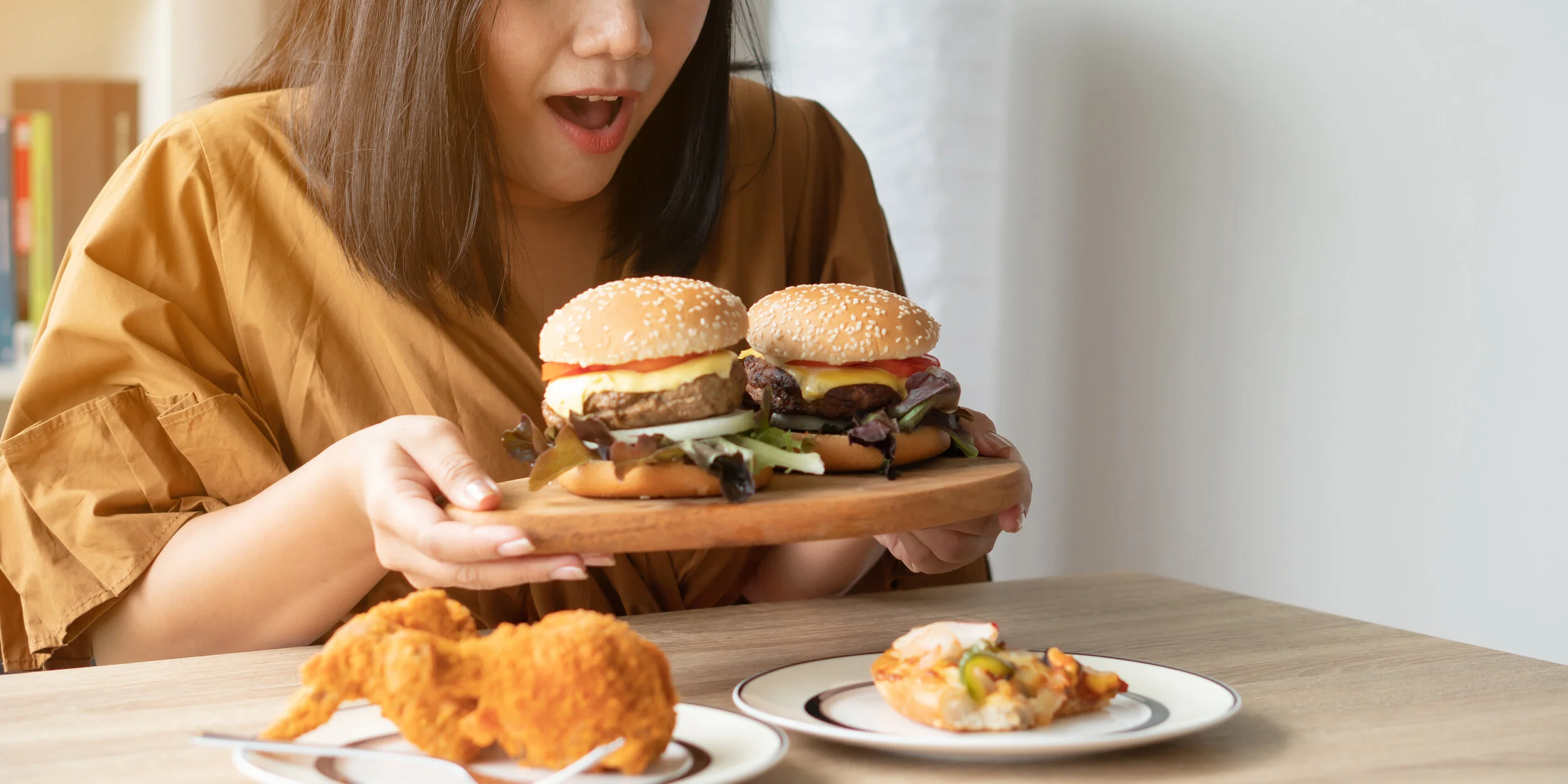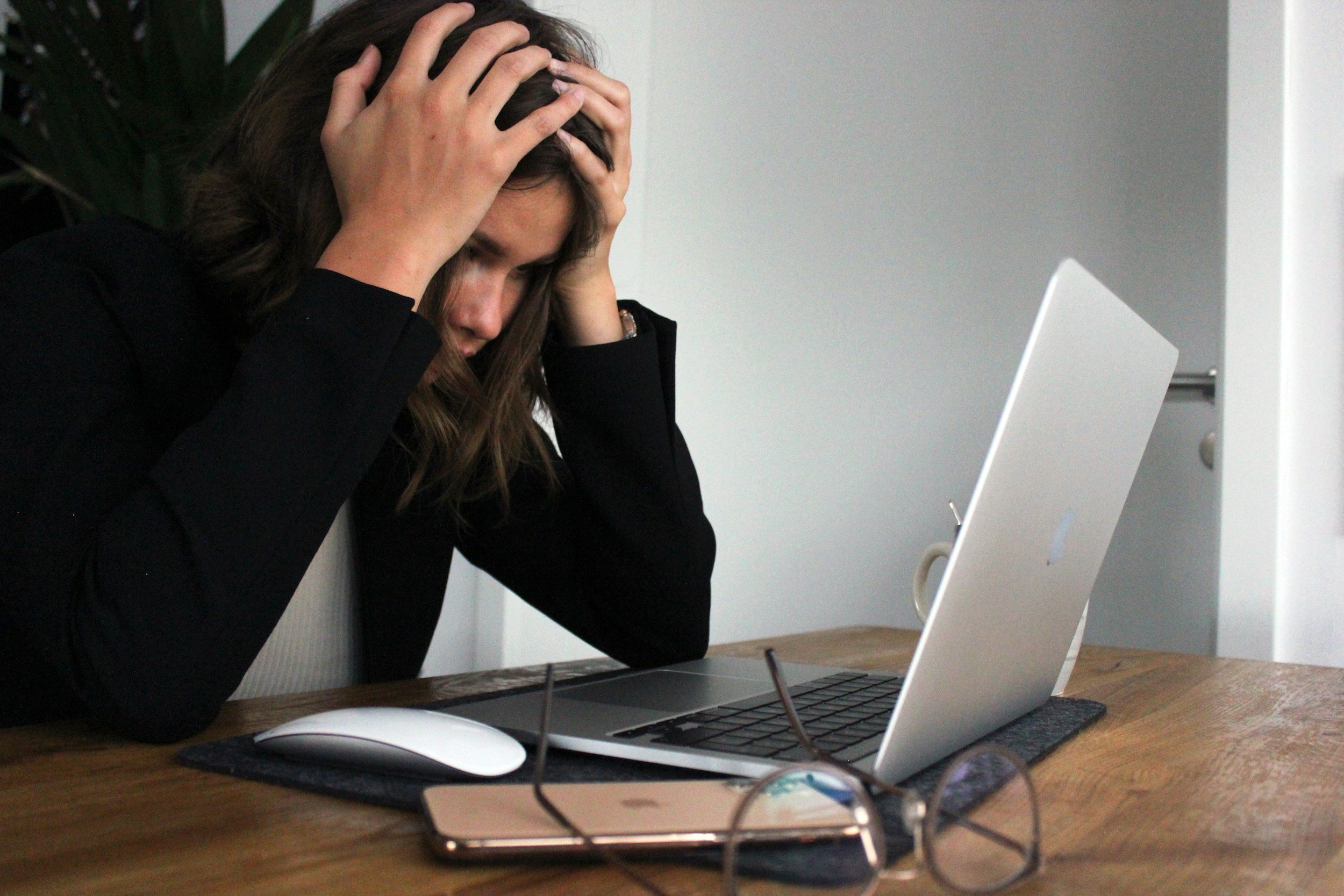Help! I Overeat and I Don’t Know Why
Do you ever start eating when you’re feeling upset or stressed, even though you aren’t even hungry? Do you ever start eating just because it helps you feel better emotionally - kind of like a warm blanket?
If you answered yes to either of these questions, you might be an emotional eater, which is often combined with the act of binge eating.
People have different ways of handling and managing their feelings and behavior when they’re feeling depressed, stressed, or upset about something. Some people choose to turn to food as a way of managing these feelings as food fills an emotional void for some people.
Emotional eating is when you eat in response to an emotional trigger – finding comfort in food when you’re upset, sad or depressed, or having negative feelings like anger.
After you choose to eat in response to feeling stressed or overly emotional, you then start feeling guilty or shameful after eating because you know you ate for the wrong reasons, like other than hunger or the need to fuel your body after a workout, for example.
This can lead to cyclical emotional eating behavior and typically won’t end until you face your emotional needs directly. Emotional eating can then lead to binge eating disorder, as well as other eating disorders, weight gain, and other related health issues.
While emotional eating affects both men and women, some studies say that emotional eating is more common among women.
Binge eating is the most common eating disorder in the United States and is classified as a medical condition. They tend to eat large amounts of food in a short amount of time, and then feel guilty and/or sad afterwards.
Binge eating is associated with psychological symptoms, including depression and anxiety. It’s important to understand your triggers to help anticipate binges before they occur. Obviously, there’s less chance that you’ll give into your triggers if you have a solid understanding of them.
One way to do that is to start a food diary, journal, or tracker. This would include everything you eat, as well as logging your feelings and emotions around when, what and WHY you’re eating. This way, you can begin to pick up on patterns and uncover what your personal triggers may be.
What triggers can lead to emotional (and binge) eating?
There can be multiple factors involved, including the following:
Work
Relationships
Finances
Health issues
Boredom
Having a bad day
Hormonal changes and fluctuations like PMS
How can you determine if you are an emotional or a binge eater? Be sure to pay attention to how and when your hunger starts, and how you feel after eating.
What kind of hunger is it?
Sometimes it can be difficult to distinguish the difference between emotional and physical hunger. Here are some ways to help you to determine which of the two main types of hunger - emotional and physical, that you’re actually experiencing:
Emotional Hunger
Hunger comes about fast or suddenly
You only crave certain foods
You binge on food but likely don’t feel full
You feel guilt or shameful after eating
Physical Hunger
Hunger develops slowly over a period of time
You desire a lot of different foods
You get the feeling of being full, and in turn, stop eating
You don’t usually have negative feelings after eating
If you think you might be an emotional (or binge) eater, here are some solutions to help overcome it:
Engage in regular exercise – walking, running, yoga (anything you enjoy that moves you - and causes you to break a sweat too!)
Have healthy food and snacks on hand at all times
Don’t go grocery shopping when you are feeling upset or stressed
Watch your portion sizes carefully
Practice mindfulness when eating
Meditation or simply deep breathing through your nose
Ask for help and support from friends and family, community support groups, and counselors
See your doctor or a dietitian, both of whom can assist with making a diagnosis











